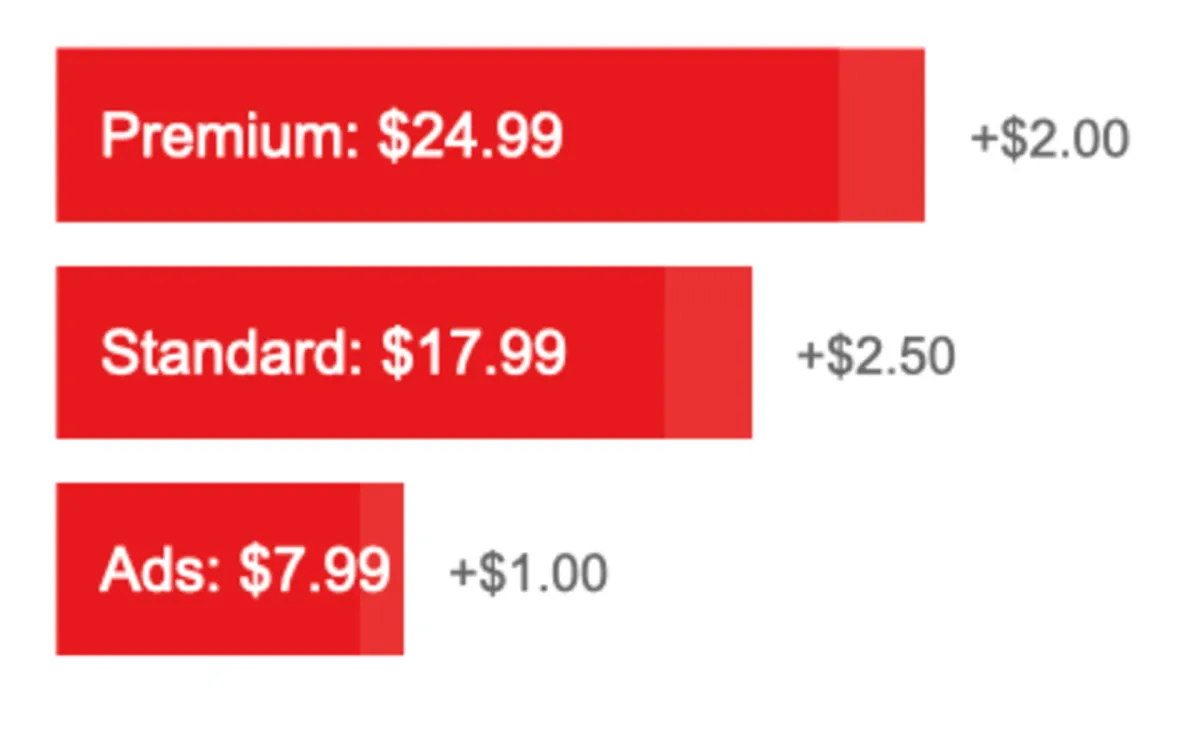
In a significant market development this month, Netflix implemented its fourth price adjustment since mid-2019, demonstrating the streaming service's strong market position despite subscriber concerns. According to Business Insider reports, the standard plan cost increased by $2.50 to $17.99 monthly, while the premium tier with 4K capabilities saw a $2 rise to $24.99.
The streaming giant's financial performance provides context for these adjustments. According to the company's latest earnings report, Netflix generated $1.8 billion in net income during Q4, with projections indicating nearly $2.5 billion for the upcoming quarter. The platform's subscriber base expanded by almost 19 million users, surpassing market expectations.
Recent analysis from UBS reveals compelling usage patterns explaining subscriber retention. According to Nielsen and company data analyzed by UBS, subscribers demonstrate extensive engagement, watching between 47 and 70 hours monthly. This translates to a cost of $0.33 per hour for ad-supported tier users, positioning Netflix as a cost-effective option compared to competitors.
The pricing strategy reflects broader industry trends. According to Business Insider, YouTube TV recently implemented a $10 monthly increase in December. Disney+ has more than doubled its price since its late 2019 launch, now approaching $16 monthly. This context places Netflix's adjustments within an industry-wide pattern of price optimization.
The impact on subscriber behavior merits particular attention. Despite vocal concerns about price increases, Netflix's low churn rate indicates strong subscriber retention. According to UBS findings, the platform's cost-per-hour consumption remains significantly lower than traditional television services at $0.37 per hour and competing streaming platforms like Disney+ at $0.46 per hour.
For the first time, the ad-supported tier experienced a price adjustment, rising by $1 to $7.99 monthly. This modest increase maintains the tier's position as an economical entry point while contributing to Netflix's revenue diversification strategy. According to company documentation, subscribers must actively accept new pricing through the platform interface or face service discontinuation.
The price modifications coincide with Netflix's discontinuation of its Basic plan, signaling a strategic shift toward higher-tier subscriptions with enhanced features. Premium subscribers now receive expanded capabilities, including 4K Ultra HD content, HDR support, Netflix spatial audio, and increased device allowances for simultaneous streaming and downloads.
This strategic pricing adjustment demonstrates Netflix's market confidence, backed by strong financial performance and subscriber engagement metrics. While some subscribers express dissatisfaction with increased costs, the platform's extensive content library and competitive cost-per-hour metrics suggest continued subscriber retention despite the price modifications.

